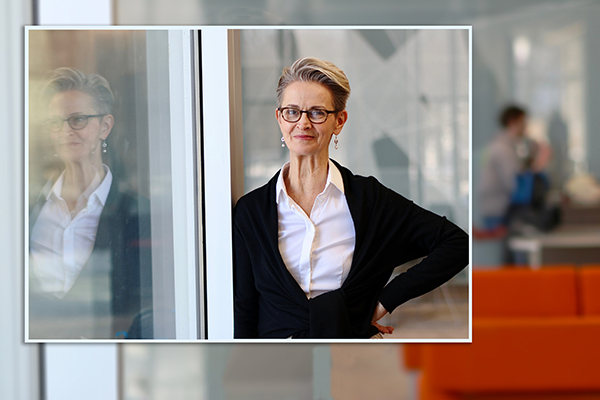About Us
Contact Information
Dean's Office
fimsadmin@uwo.ca
519-661-3720
FIMS & Nursing Building
Rm 2050
Accessibility at Western
accessibility@uwo.ca
519-661-2111x81458
Support Services Building
Room 4159
Dean's Welcome
 A Welcome from the Dean
A Welcome from the Dean
In the course of a day, how often do you experience life at the intersection of media and information? Do you follow the news? Elections? Celebrities? Do you use a mobile device, post to social media, scan feeds, make music, stream videos, read books, bank or buy things online, renew government documents, or call an Uber? These practices take shape amid vast networks of information moving locally, globally, almost instantaneously. They affect our rhythms and expectations for interacting on- and off-line. They are driven by complex systems of power in law, the economy, and society that influence what we know and when. Information moves best for those of us with access to those complex systems. Without devices, without reliable electricity, without practical skills and literacies of many kinds, the world of information and mediated culture that many of us depend on can seem pretty distant.
At FIMS, faculty and students are devoted to understanding how information and media shape our everyday lives—from how we express ourselves and join in expression with others, to our data doubles, our libraries, our health, our media education, our cultural reconciliation. We want to think critically and rigorously, to develop theories that organize how we understand the big and small pictures, and to work out how different people and communities can use our research for social development and change. We also believe that to deeply understand the present requires understanding our mediated past. History matters.
FIMS faculty are first rate scholars, teachers, journalists, librarians, cultural critics, and artists devoted to a “maker-thinker” curriculum, a hands-on/heads-on pedagogy for undergraduate and graduate students. Our programs connect theory and criticism to applied skills like writing, audio-visual and digital storytelling, digital design, field and archival research, information management and cultural collaboration. They connect our vast technological architecture to multicultural society in Canada and abroad. Our undergraduate students go on to work in media, journalism, public policy, community development, government at all levels, social marketing, public relations, and advertising, to name just a few fields. Our graduate students become scholars, journalists, librarians, health information managers, and data scientists.
We believe in information access, in the pleasures of media participation in making communities and worlds. We believe in research and creative capacity for all our students, helping us develop the ways of making and thinking we need to explore media, information and culture, to find answers that understand, not reduce, contemporary life, that help us to contribute, to intervene, and to thrive.
Welcome to FIMS.
Lisa Henderson
Dean, Faculty of Information & Media Studies


